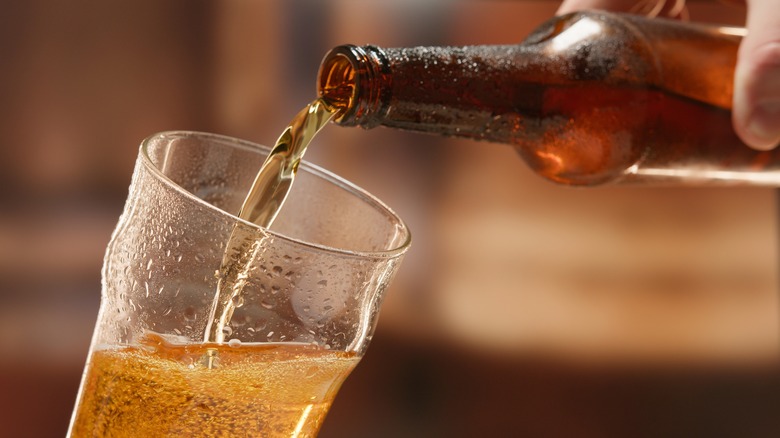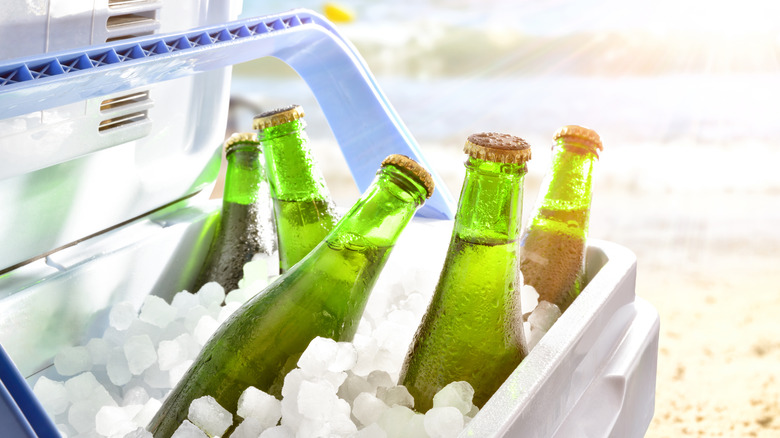How Does A Beer Get Skunky?
A skunked beer tastes like a skunk smells (not good). But what makes beer skunky? It's commonly thought that subjecting beer to variations in temperature will skunk it. However, a skunky tasting and smelling beer is caused not by heat but by light. In fact, skunky beer is often called lightstruck beer, which sounds way cooler than the phenomenon itself.
Isohumulones (also known as alpha acids), the bitter compounds in hops used in beer, are very sensitive to natural light (artificial light affects them, too, but not nearly as fast), which triggers a chemical reaction. "If light reaches them, they break down very quickly and react with traces of sulfur compounds in the beer," says Charles Bamforth, former chair of the Food Science and Technology Department at the University of California–Davis and a top researcher in brewing science.
This process produces MBT (3-methyl-2-butene-1-thiol), which smells like skunk and is chemically very similar to compounds in a skunk's spray. Plus, it's potent. Some people can detect MBT at concentrations as low as one-billionth of a gram in a 12-ounce beer. Canned beer offers the best protection against damaging light waves, and brown bottles rate a close second. "If you have really strong light for a very long time, then even in brown glass, the beer goes skunky," says Bamforth. "But in a clear glass or a green glass, it'll happen very, very quickly." Sometimes, in a matter of seconds, not hours.
How to prevent skunky and off flavors in beer
Some beer in green glass bottles will never get that skunk smell. The secret? Some brewers use hop substitutes, tetra and hexa hops, to avoid the chemical reaction responsible for that signature skunk smell when beer is exposed to light. Then there are the super-hoppy, intentionally funky IPAs and barnyard sours, which might hit you with a wallop of skunky smell — or otherwise strike you as unpleasant — but are still okay to drink.
Allowing chilled beer to get warm and then trying to chill it again still isn't a good idea. Heat speeds up oxidation, causing the beer to taste like cardboard. To preserve the flavors in your beer, especially beer bottles, always store them in a cool, dark place or a packed cooler. This won't always do the trick, as there are other ways for beers to be adversely affected.
Bacteria like diacetyl, for instance, occur naturally during fermentation due to the yeast but can go out of control in a beer and cause overwhelming buttery flavors. Other compounds that can negatively impact beer smell and taste are acetaldehyde (aromas of grass or green apple) and dimethyl sulfide (sometimes compared to creamed corn).

